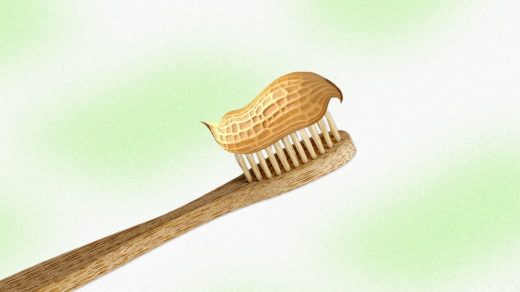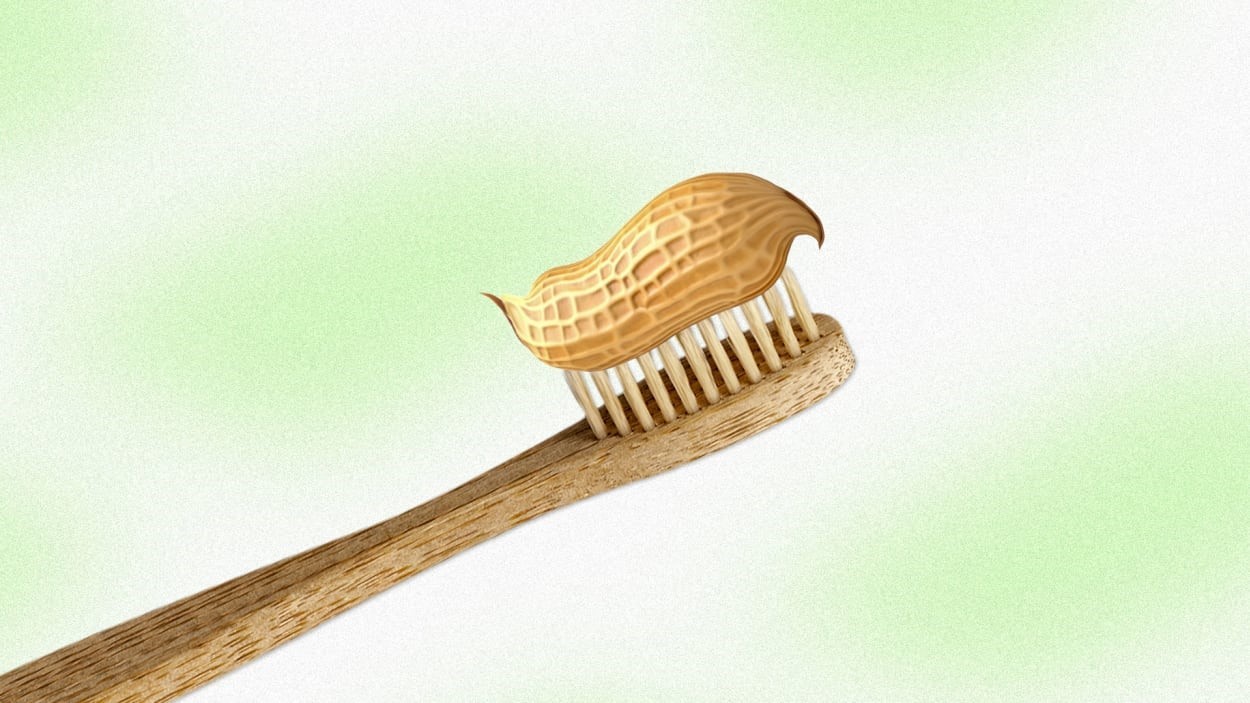This toothpaste could treat peanut allergies. Here’s how it works
Peanut allergies are often thought of as a childhood worry. But only about 15% to 20% of kids outgrow them. Peanut allergies impact about 4.6 million adults in the U.S. About 17%, or 800,000 of them, developed the allergy in adulthood, according to a 2021 study. But now, for all those adults who are allergic to peanuts, protection in the form of toothpaste is on the horizon.
Results of an early-stage clinical trial were presented Thursday at the American College of Allergy, Asthma and Immunology’s annual meeting. The study involved 32 adults, 24 of whom used a toothpaste containing trace amounts of peanut protein made by biotechnology company Intrommune Therapeutics. Eight were given a placebo. Participants were asked to brush their teeth with the substance once a day for 11 months. The hope was that introducing small amounts of peanut protein would lessen the prevalence of severe reactions to it over time.
The results were promising. By the study’s end, none of the participants experienced severe reactions or anaphylaxis (difficulty breathing and swelling of the throat that can have life-threatening consequences).
Allergist William Berger, the study’s lead author, told NBC News that he believes the toothpaste is an easier, more pleasant experience for peanut allergy sufferers than ingestibles. After further studies, which would involve children and bigger groups, Berger hopes to submit the toothpaste for FDA approval within two to three years.
There have been several other advancements for peanut allergy sufferers in recent years, many of them also tested on children. A similar study earlier this year had children put a small amount of liquid peanut extract under their tongue. By the end of the study, toddlers who were allergic to peanuts could tolerate up to 15 peanuts. A peanut patch is also being studied. And a powder, which is to be mixed with a child’s food and taken over time in a series of doses, was approved by the FDA in 2020.
Treatments are still relatively new, and parents have only been receiving information about introducing peanut oil for a few years. Lindsey Gibson, who has a 7-year-old with a peanut allergy that became more severe over time, tells Fast Company that she wishes she’d received more current information when her child was an infant. Instead, she was told to strictly avoid peanuts and peanut oil. Two years later, after a second opinion, they started sublingual immunotherapy (SLIT) treatment in the form of drops that exposed her child to small doses of the allergen.
She says introducing the powder mixture, or another proven treatment, would’ve been a game changer. “I absolutely would’ve used them with my part-breastfed, part-formula-feeding infant to prevent allergy development, had I known about them in advance of the diagnosis.”
Gibson thinks the toothpaste sounds practical but also notes an aspect that could potentially need more attention for children. “We can’t do SLIT drops on days when my child has lost a tooth, because if too much peanut protein hits a little blood in the mouth, that could cause a reaction,” she says. The same goes for days when her child is under the weather or has a fever, because introducing the protein could “flood the system into a reaction.”
Whatever the treatment is, it’s clear that introducing allergens sooner is better. And with peanut allergy cases rising, advances that could save people from the most severe reactions are more important than ever.
Correction: An earlier version of this story incorrectly stated that the toothpaste contains a peanut oil. It actually contains a peanut protein.
(20)



